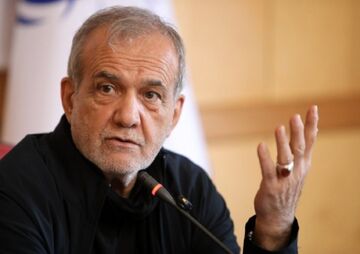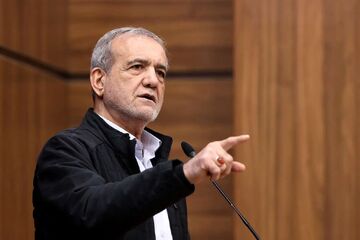TEHRAN(Bazaar) – John Dunn, professor of political science at the University of Cambridge says cooperation over artificial intelligence is and will remain difficult for US and China because it is a facility in economic, political and military competition, but cooperation is also to some degree in their joint interest because of the very drastic dangers it might easily pose to both of them.
In an interview with Bazaar, John Dunn adds “I think Xi is keen to press China's advantages against the USA, but rationally anxious about pressing them too far.”
Following is the full text of the interview:
Q: US President Joe Biden met with Chinese President Xi Jinping on the sidelines of the Asia-Pacific Economic Cooperation summit in San Francisco. What was the importance of this meeting?
A: I think the meeting was important because relations between the US and China have become dangerously acrimonious and the air and sea encounters between their armed forces are intrinsically hazardous. It would definitely be in the rational interest of both to calm all of these down.
Q: US President Joe Biden in this meeting announced: With the Chinese President regarding the expansion of cooperation in the fields of combating, we agreed on drugs, military relations, and artificial intelligence. What is the importance of cooperation in the field of artificial intelligence for the two countries?
A: Cooperation over artificial intelligence is and will remain difficult for them because it is a facility in economic, political and military competition, but cooperation is also to some degree in their joint interest because of the very drastic dangers it might easily pose to both of them.
Q: A senior American official said by quoting Xi Jinping's words with Biden that China prefers to achieve ‘reunification’ with Taiwan through peaceful means, but in certain circumstances, we may also use force. What is your assessment of Xi's words about Taiwan? Do you think the Taiwan crisis will bring the two countries to war?
A: I don't expect it to bring them to war this year and I doubt if it is possible to have reasonably clear expectations of the way the risks of war would alter if Trump becomes President of the United States next November.
Q: Jake Sullivan, the national security adviser of the White House, said before the meeting between the presidents of the United States and China: Biden believes that there is no substitute for face-to-face diplomacy to manage the complex relations between the two countries. We anticipate that the leaders will discuss some of the most fundamental elements of the US-China bilateral relationship, including the continued importance of strengthening open lines of communication and responsibly managing competition so that it does not devolve into conflict. What do you think of these remarks?
A: I think what Sullivan said was entirely sensible.
Q: The President of China said in the meeting with Biden, “This planet can accommodate China and America (at the same time)”. Some believe that this statement proves that, contrary to some opinions, Beijing was not and is not following the decline and fall of the US. What is your assessment?
A: I think Xi is keen to press China's advantages against the USA, but rationally anxious about pressing them too far. It would always have been catastrophic in the last two decades for Taiwan to declare independence but I think it's now extremely unlikely to do so in the next five years and that it's almost equally unlikely for Xi to invade unless it does or is very actively threatening to.
What Xi cares about is China and his own political position within it. He doesn't have a record of gambling on things over which he could have very little control. It's very hard to limit wars once they have begun. No politician could sanely hope to benefit from unlimited war between China and the USA. Xi has quite enough troubles in China itself already to be getting on with for now.
















نظر شما